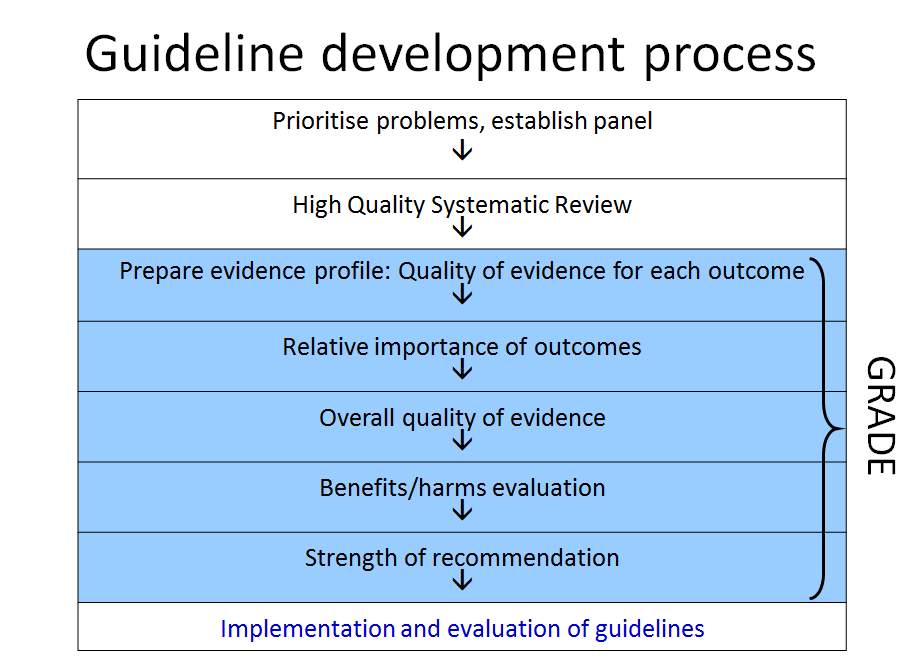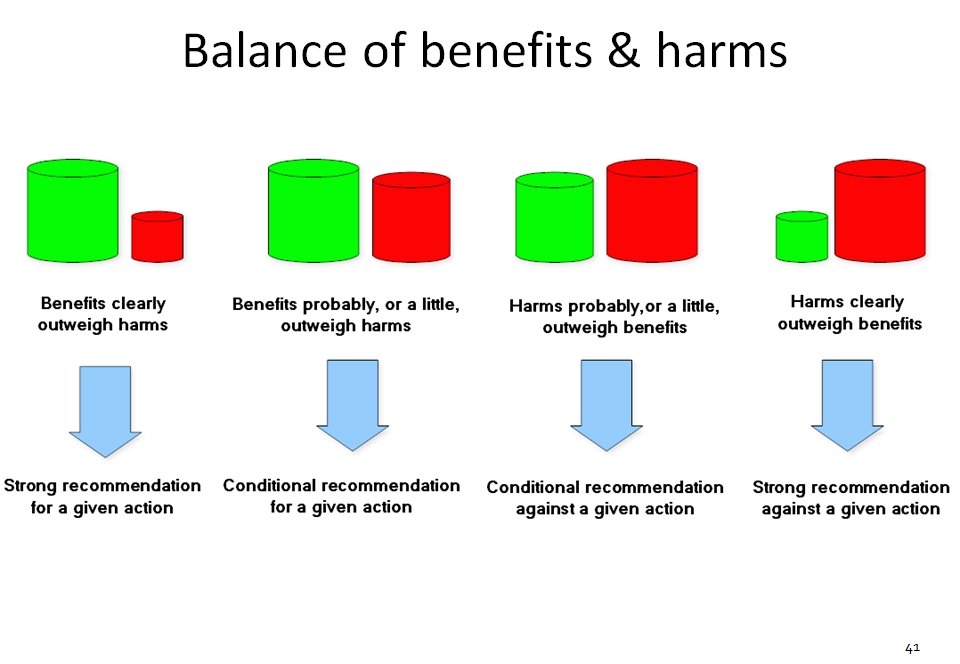Explanation of the GRADE appraisal of recommendations
|
Several factors should be taken into account to
appraise the strength of the recommendations, including the available
scientific evidence, the balance of benefits versus harms and burdens,
differences in values, and the balance of net benefits and costs. |
| The overall ranking of the strength of the recommendations would consider each of the above mentioned factors as follows: |
• The higher the quality of evidence, the more likely is a strong recommendation.
• The larger the difference between the desirable and undesirable consequences, the more likely is a strong recommendation warranted. The smaller the net benefit and the lower certainty for that benefit, the more likely is a weak recommendation warranted.
• The greater the variability in values and preferences, or uncertainty in values and preferences, the more likely is a weak recommendation warranted.
• The higher the costs of an intervention, that is, the more resources consumed, the less likely is a strong recommendation warranted.
|
 |
| |
|

|
Balance of benefits & harms
The larger the difference between the desirable and undesirable consequences, the more likely a strong recommendation warranted.
The smaller the net benefit and the lower certainty for that benefit, the more likely is a conditional recommendation warranted.
|